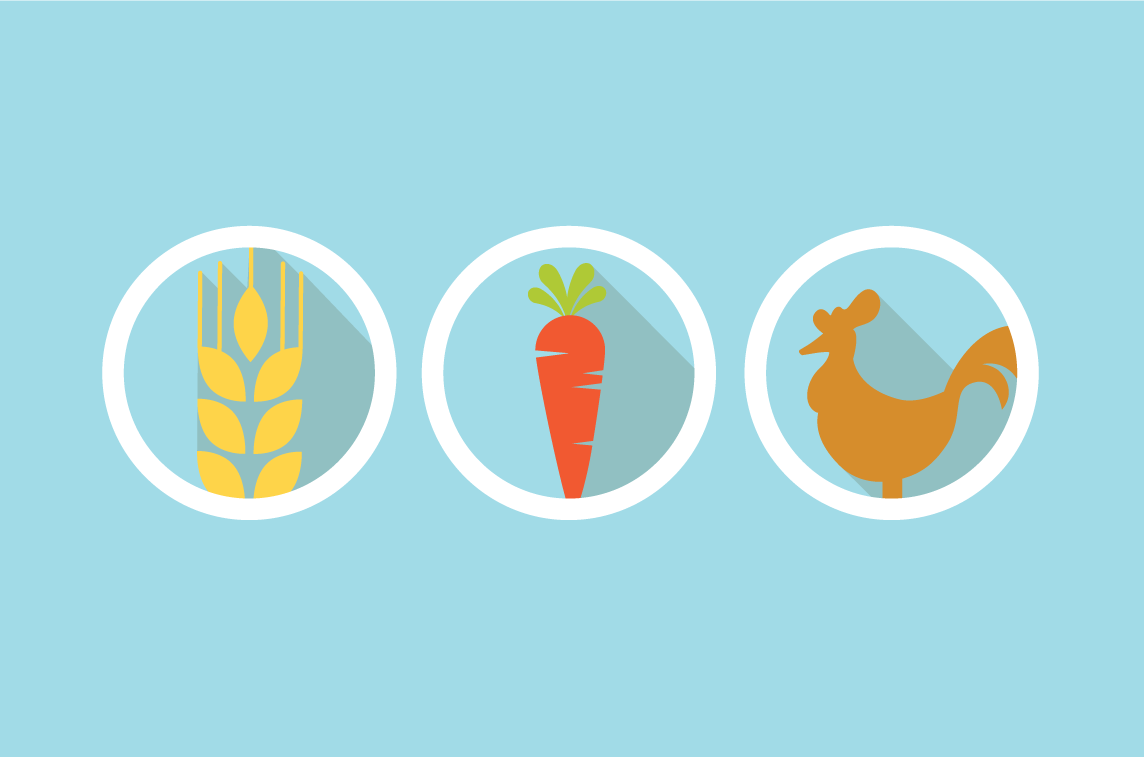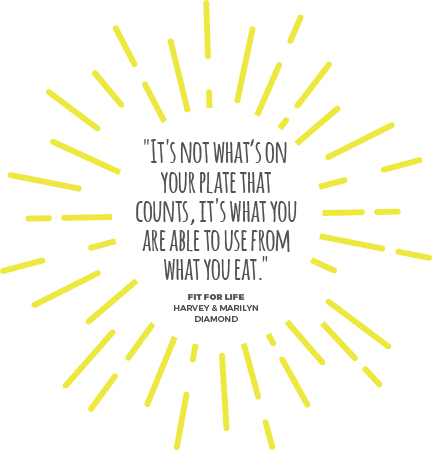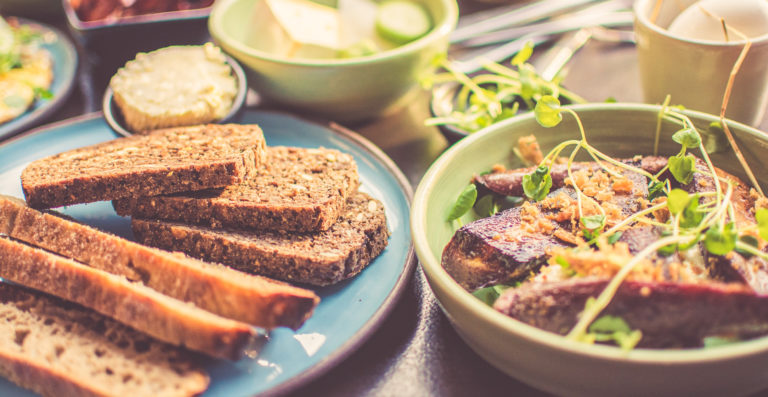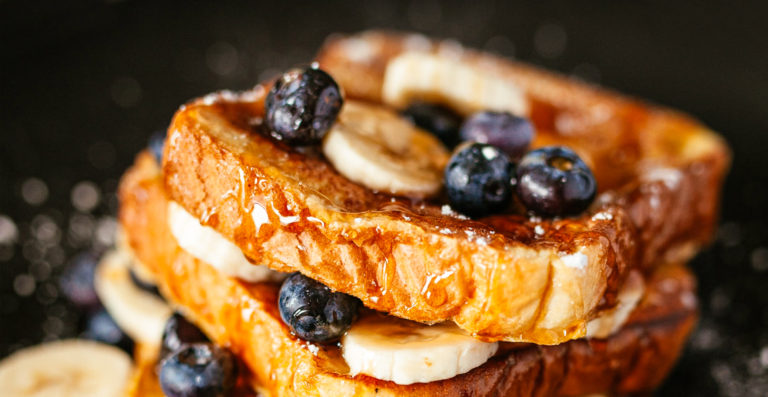
Digestion Is A Big Deal
If you’re looking to be one of those super healthy, slim, energetic people (yay!) who never get sick, then proper food combining is crucial.
The crazy part is you’ve probably never even heard of it before. Food combining is about eating certain foods together to make sure you’re able to quickly digest everything, grab all the nutrients, and keep any toxins from clogging up your body. Here I’ll show you just how to combine food properly to maximize your digestion and improve your overall health. Unfortunately, what you will not learn here is how to to convince your family you’re not a food snob; because when you tell them you no longer eat proteins with carbohydrates, that’s what they’ll think. Sorry.
Right off the bat I’m going to make you sad… or angry… by saying that those delicious turkey sandwiches you enjoy are filling your body with are making you a host for toxins. So are the hamburgers and quesadillas. Even your yummy breakfast of eggs, grapes and toast is causing your body to fill with nasty little critters. But before you storm off in a fit of rage, hear me out.

FOOD IS FUEL AND WE NEED THE BEST FUEL
Food needs to be digested to be used right? It’s our fuel source. This is why the concept of food combining exists: to allow the body to break down the foods it consumes and allow the nutrients to be assimilated into the body. Food that doesn’t get completely digested is difficult to eliminate; leading to weight gain & toxicity.
Sandwiches, at least the traditional kind that combine meat with bread (and an assortment of colorful veggies and condiments), are actually really tough on your digestive system. Why? Well, when you eat high protein foods like meat with starchy carbohydrates like bread, your body can’t actually digest this combo properly, wreaking havoc on your digestive system and not letting your body absorb all the nutrients it needs from your sandwich. Never thought a sandwich was that bad, huh?
WHY FOOD COMBINE?
The book Eating Alive by Jonn Matsen N.D. introduced the concept of food combining to me, and sums it up pretty well here:
Carbohydrates are first digested by alkaline juices from the mouth, and proteins are digested by acid juices from the stomach. Eating the two foods together results in neutralization of the digestive juices, and the foods takes much longer to digest. When digestive time is extended, the changes of fermentation and putrefaction toxins being formed by the intestinal flora in increased. Mixing the two food groups increases the production of intestinal toxins by neutralizing the production of digestive juices and giving the intestinal flora more time to go back for seconds in the intestinal smorgasbord. Their waste products (toxins) are what then foul up the elimination organs and cause most disease.
Proper food combos are crucial for people with dietary issues like hypoglycemia, diabetes, digestive problems and even food allergies. If food does not get digested properly, nutrients do not get properly assimilated, and then the body cannot completely use the food you eat! Then your body needs to work super hard to get of the toxins you’ve accumulated, overworking your organs. Since overworked organs do not work properly, eventually organs will start to tell you something is wrong. If you don’t kick your own ass in gear and listen to your body, you’re potentially looking at obesity, high cholesterol, high or low blood sugar. Pretty dramatic huh?
HOW TO FOOD COMBINE
Here are the rules for food combining from Prescription for Dietary Wellness
Proteins, acidic fruits, and green vegetables can be eaten together
Fats, starches, and green vegetables can be eaten together
Starches, and proteins, fats and proteins, and starches and acidic fruit should NOT be eaten together.
Is that confusing? Here’s a chart and some food examples:


COMBINING PROTEINS
All meats/proteins, like fish, eggs, cheese, and nuts combine best with other proteins or non-starch vegetables like broccoli or lettuce; and combine poorly with fats, starches, and fruit. When you eat protein with sugar or starch you neutralize the enzymes needed for digestion. A traditional dinner staple, meat and pasta, is a bad combination; as is any fruit combined with eggs, cheese, or meat.
Avoid drinking milk with protein, as it neutralizes the acid needed to break down proteins. Milk curdles in the stomach, then the curds coagulate around food particles, keeping them from being properly exposed to gastric juices. Digestion is delayed and food putrefies in the digestive tract. Bleh.
COMBINING VEGGIES & FRUIT
Veggies work well with starches and protein, but fruits are more limited. Fruits should generally be eaten alone, especially melons which digest very quickly. You generally don’t want to combine fruits with vegetables, the only exception being apples. But there’s good news if you enjoy fruit and yogurt for breakfast; this is a good combo because fruit can be combined with fermented food like yogurt or cottage cheese.
COMBINING SWEETS
Simple carbohydrates, or sugars like the ones found in cakes, chips, white bread, etc., slow down digestion. The secretion of the gastric juices we need for breaking down protein is nearly stopped by sugar. Sugars break down in the intestine and proteins break down in the stomach. If a sugary food is eaten with meat the sugar can get held up in the stomach by the meat until it ferments, which can create problems like bad gas, bloating, or heartburn.
MAKING THE CHANGE
Being armed with information about proper food combining can feel like you need to make drastic changes to your meals. If you’re a ‘Meat & Bread’ type of person all this info isn’t going to make you very happy. Fortunately, if you’re serious about improving your health there are plenty of great meal combos you can eat – and if you’re really craving steak and potatoes, just leave some time between the two to help your digestion. It’s hard to pinpoint exactly how much time you need to wait between eating two foods that shouldn’t be combined since each food is different, but the general consensus is:
2 hours after eating fruit
3 hours after eating starches
4 hours after eating proteins
Happy eating!





Leave a Comment